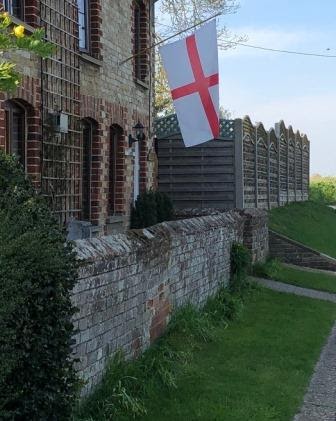tomorrow
tomorrow
will be a better day
God willing
I will put away my hating hat
find my compassionate beret
put it in cheeky fashion askew
on my very bemused head
and stop wishing myself ,
and everyone else,
would drop down dead
Though still in my scruff sailing gear, I was permitted to take tea with the family, a formal affair overlooking their lawns through the open French windows, when they told me a little of the history of the old place. It used to have some large oak woods attached, where the trees had been planted particularly closely together at the time of the Napoleonic wars, when many of the old oak trees had been felled to build boats for Nelson's navy. By planting them close, the branches of these new trees were forced to curve upwards as they grew, so their timber could be used for the curved frames of the hulls.
 |
| The old bird-table |
Yesterday, our son-in-law Sam erected the old bird-table my father had built for mum. She loved her birds and fed them everyday, threading peanuts on string, or tying bacon rinds to the hooks. Dad too built things to last, and his bird-table is more than 50 years old, and as solid as he first made it. Sam also built the Saloon behind the garden, which is equally solid and built to last. These times of change and uncertainty make us long for some stability and durability in our lives, and such strength and quality are a reminder of the value of good workmanship in continuity.
In this throw-away society, the NHS dispose of everything when it's been used once, whereas they always used to have quality materials, even for the face-masks, which they could sterilise and reuse many times. Now they are running out of disposable essentials. We might not welcome the old recurrent European wars, but we could certainly do with some of their stability and forward planning. It is surely time to return to old-fashioned quality and durability.
 |
| St George's Day comes to Hundon |





